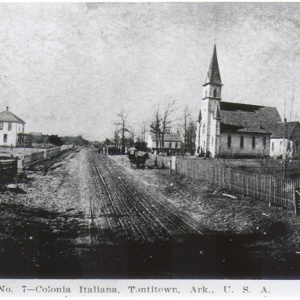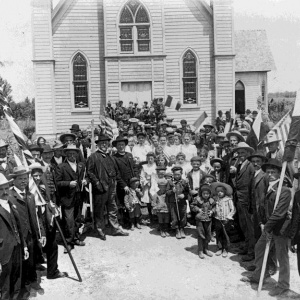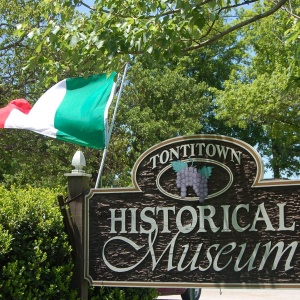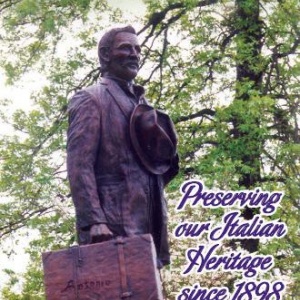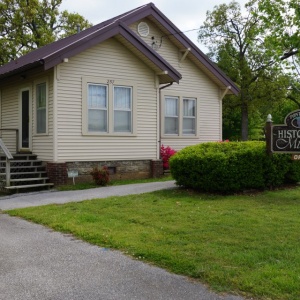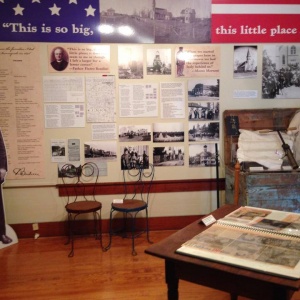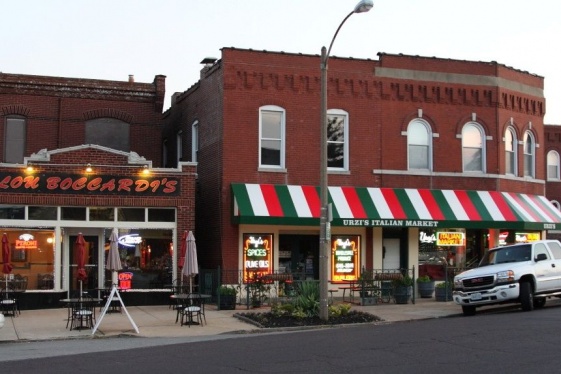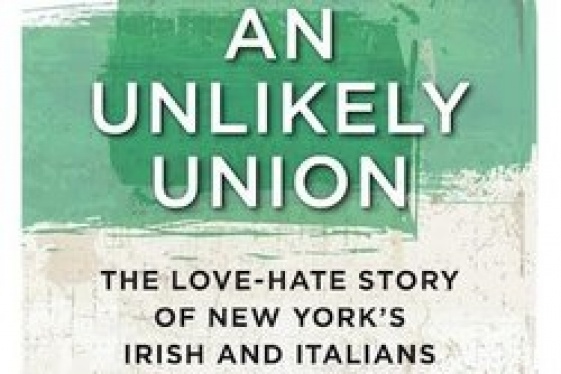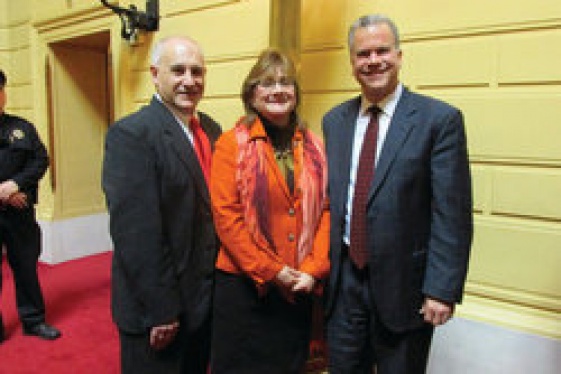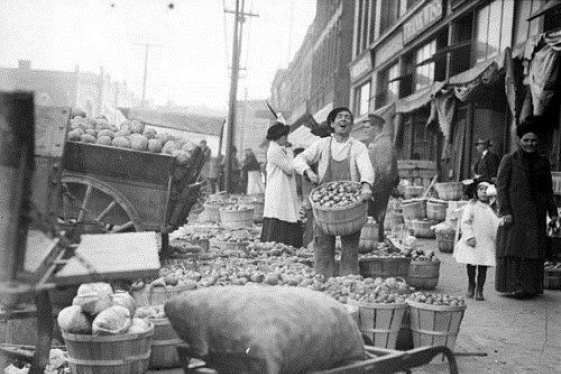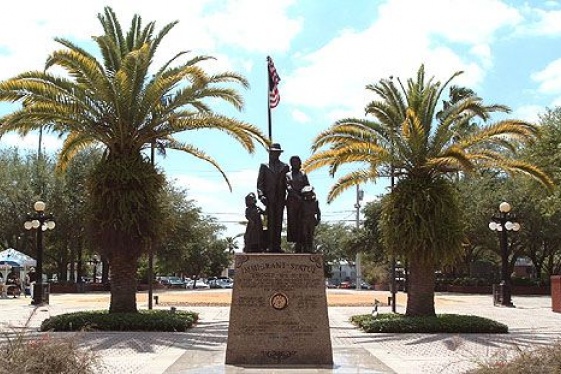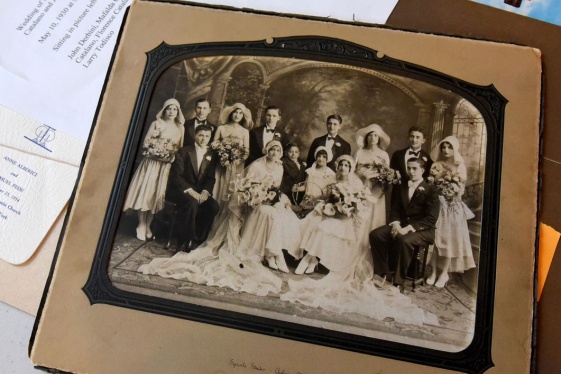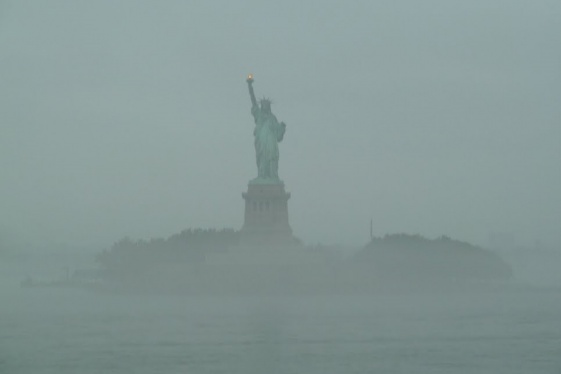
Charlotte Piazza (Curator of the Tontitown Historical Museum)
L'Italia in Arkansas: benvenuti a Tontitown

If you think that the story of the Italian explorers and the territory now called "United States of America" stops at Cristoforo Colombo and Amerigo Vespucci, you probably never heard about Giovanni Caboto (the fact that English is the language spoken in the US can be directly attributed to England's claims in North America, based on his voyages), Giovanni da Verrazzano (the first European to enter in the New York Bay), Francesco Vigo (he financed the Northwest Expedition of George Rogers Clark and accompanied him through the lands that would become Ohio, Indiana, Illinois, Wisconsin, and Michigan) and Alessandro Malaspina, who mapped the Pacific from Mexico to Alaska and to the Philippines.
Today we want to talk about Enrico Tonti, a Sicilian who was the first to sail on the Great Lakes in 1679, the founder of the territory that became the State of Illinois, and the colonizer of Louisiana and Arkansas, where there's even a Tontitown, with a museum curated by a very kind lady, Charlotte Piazza.
Charlotte, please tell us who was Enrico Tonti or, as you call him in the US, Henry De Tonti?
He was an Italian explorer who discovered the Mississippi River. He found the Arkansas Post, the first permanent European settlement in the lower Mississippi region, in about 1692. He was from the Southern part of Italy, close to the boot. During the Third Anglo-Dutch War he lost his right hand in a grenade explosion. As an explorer, he was an associate of the French voyager La Salle. Henry De Tonti acquired some land in the Arkansas Post of the Mississippi: and granted the Indians to live there.
Please, tell us something about the birth of Tontitown and the Italian emigration to Arkansas as long as you know about it.
At the end of the XXth century the US were growing and needed workers, and searched for them all over Europe. Here in particular, it was the southern part of the State that was looking for workers, around Lake Village which is in Chicot County. In Italy the Italians were taxed very hard and had a lot of uncertainty, so they decided to come to America. They arrived to two different cities: New York, through Ellis Island, and New Orleans. Those who came into New Orleans were a lot, and came to Lake Village, mainly on several barges: when they arrived, they stayed in a plantation called Sunnyside, in Arkansas.
These people that came upon the barge to Lake village were treated as slaves. They were promised to have a land, but they didn't. They were promised to have clean water, but there wasn't: and a lot of people died from malaria. Father Pietro Bandini came to Sunnyside to check this out, and he saw how this group of men from Italy was being treated and he tried to get this people out of here. So he brought the people out of Sunnyside to Northwest Arkansas, Arkansas, to places not much different than the places they used to live in the Italian countryside. So in this place called East Springdale there was a little chapel and a few acres, something like forty acres, and these people started to live in that church, that later became a school. They stayed there, and Father Bandini acquired land around those 40 acres. I think it was 1898.
So Father Bandini was the founder of Tontitown. He was the one who brought the Italian immigrants to Northwest Arkansas. When they cleared off the land there was nothing there, just trees and a little bit of. So they had to harvest, and when they did it, they started for the first time what it is now called the "Grape festival": it must have been a simple pic-nic, at that time.
So, Father Bandini decided to suggest to name the town Tontitown, after Henry De Tonti. De Tonti probably was a Jesuit, and Father Bandini was a Jesuit, both born in Italy. There were three names the Italian immigrants could choose from, and Tontitown was the one most voted. Father Bandini was the first mayor of Tontitown.
In its first 100 years, Tontitown has had 16 mayors: 12 of them had an Italian family name. Is there a big Italian American community in Arkansas?
Yes, it has been. It was basically an Italian community. Now there's not so many Italians anymore. I came here from Kansas.
What is the story of the Tontitown Historical Museum?
The Museum was established in 1986. A lot of the history was being lost, and that's why the community decided to collect pictures and artifacts in a museum. We have a few things that belonged to some of the original settlers. My husband and I take care of the museum, I am the curator, and I have been the only one from the beginning.
Which are the museum's activities?
We have the polenta in November. Then we have the May event, which is a big pic-nic: games, bocce playing ... it's in the park.
Is there a place that has a particular importance for the Italian history in Tontitown and its surroundings?
Yes, we have a monument in front of the city hall, dedicated to the immigrants. It has engraved on its base all the names of the original 42 settlers, and their families. There's a statue in the Valle del Pasubio in Italy very similar to it, and that's where my husband had the idea: so we built a statue for the immigrants on the 100 year anniversary of the founding of Tontitown, in 1998.
The major event of your city is the Tontitown Grape Festival: it has been going on for over a hundred years. Does something "Italian" happen during the festival?
First I want to tell you that the Tontitown Grape Festival is the only grape festival in Arkansas: it has been going on for 117 years. During the grape festival there are spaghetti dinner services for three nights: Thurdsay, Friday and Saturday night. Thousands of people participate to the Festival. They come from everywhere, some people even from California. Not all of them are Italians, of course.
There is an arts and crafts section; there's a race called "Run for the Grapes"; we have music. There's a beauty contest called "Queen Concordia"
Enrico Tonti was an Italian explorer, as Christopher Columbus was. As an Italian American who knows the story of the former, what do you think about the recent attacks to the latter?
We don't know what Columbus had in mind at that time. I don't think it is a fair conclusion to judge facts and people from centuries ago as they were happening or acting today. For example: some may think that in our area people of Indian lineage would be angry with Columbus: but there is no anger at all, for what I see. Everybody here, and not only here, know that Italians are good people. The Italian settlers even helped the Indians, back then.
You may be interested
-
“The Hill” St. Louis’ Little Italy
When the fire hydrants begin to look like Italian flags with green, red and white stripes,...
-
An Unlikely Union: The love-hate story of Ne...
Award-winning author and Brooklynite Paul Moses is back with a historic yet dazzling sto...
-
Polisena delivers address as state lawmakers...
"Italian-Americans came to our country, and state, poor and proud," Johnston Mayor Joseph...
-
The “Little Italies” of Michigan
In doing reseach for this post, I was sure that Italian immigrants found their way to Detr...
-
Ybor City – Florida’s Little Italy
"The people who had lived for centuries in Sicilian villages perched on hilltops for prote...
-
''La Gente di Mulberry Street'' presentato a...
Valsinni- Italia, terra di emigranti. Presentato a Valsinni il nuovo saggio storico di Raf...
-
'A better life': Cayuga Museum showcases Ital...
When Cayuga Museum Executive Director Eileen McHugh was approached by a group of Italian-...
-
'America: Promised Land' reveals how immigran...
The subject of immigration has always been a hot political topic in the United States. The...






